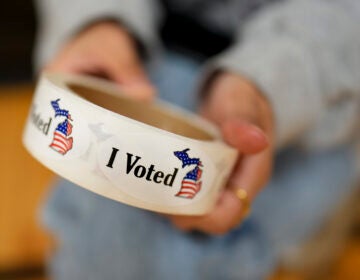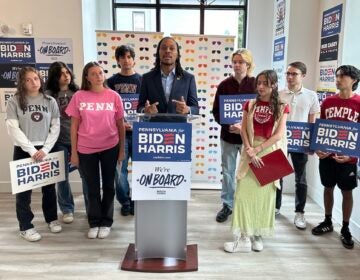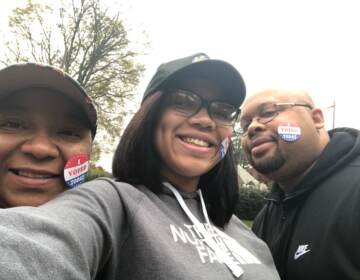For 2020, Philadelphia hopes to build on 2018 record-breaking young voter turnout
The number of young voters showing up in Philly doubled from 2014 to 2018. Now, the city is looking to increase youth engagement even more ahead of the 2020 election.
Listen 3:29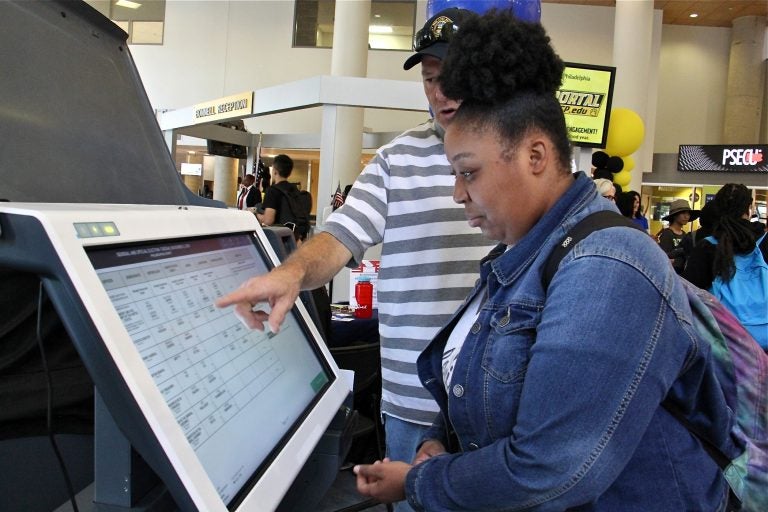
Community College of Philadelphia student Hanna Archibald, 20, learns how to use a new voting machine from Matthew McKeon of the City Commissioners Office. (Emma Lee/WHYY)
Young voters showed up in droves to vote in last the 2018 midterm elections. Ballots cast by 18-to-34 year old voters in Philadelphia increased 111% from 2014. Now the city is turning to college campuses to boost young voter participation even more for 2020.
Despite student voter engagement doubling nationally, Philadelphia’s colleges still voted at a higher rate than their peers nationwide.
In order to keep the same participation momentum going into the 2020 election, the Mayor’s Office of Youth Engagement and nonpartisan advocacy organization Committee of Seventy created First Vote 2020: An initiative designed to educate young voters and make elections more appealing to young people that launched last month.
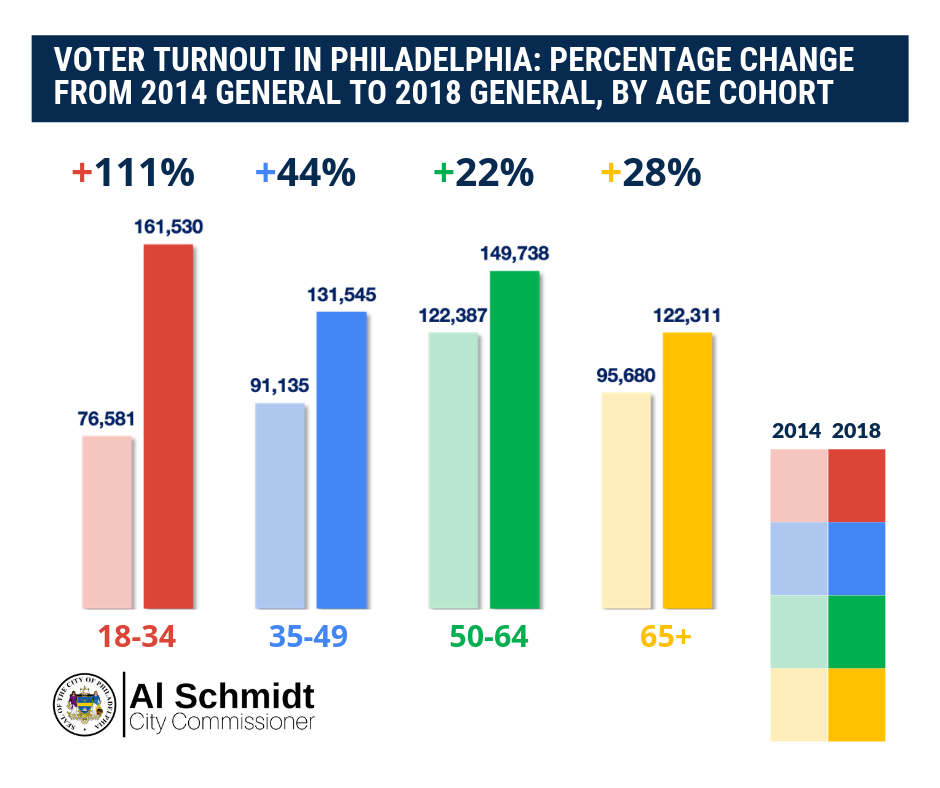
Jude Husein, a senior at La Salle University, grew up in Kensington and attended George Washington High School in Northeast Philly. Now, she serves on the Philadelphia Youth Commission, part of the Office of Youth Engagement.
She said young voters are excited to elect candidates who prioritize decreasing gun violence and preparing young people for the workforce — issues she said many feel aren’t being addressed.
“The hype is simply we want someone who’s relatable. We want someone that understands the need. We want a young person’s voice to matter,” she said. “When we use it, we see changes and we’ve seen changes in the city of Philadelphia. We have young people going out and standing up for what they want. We have young people going out and testifying on a number of different issues, and that’s what we need to see.”
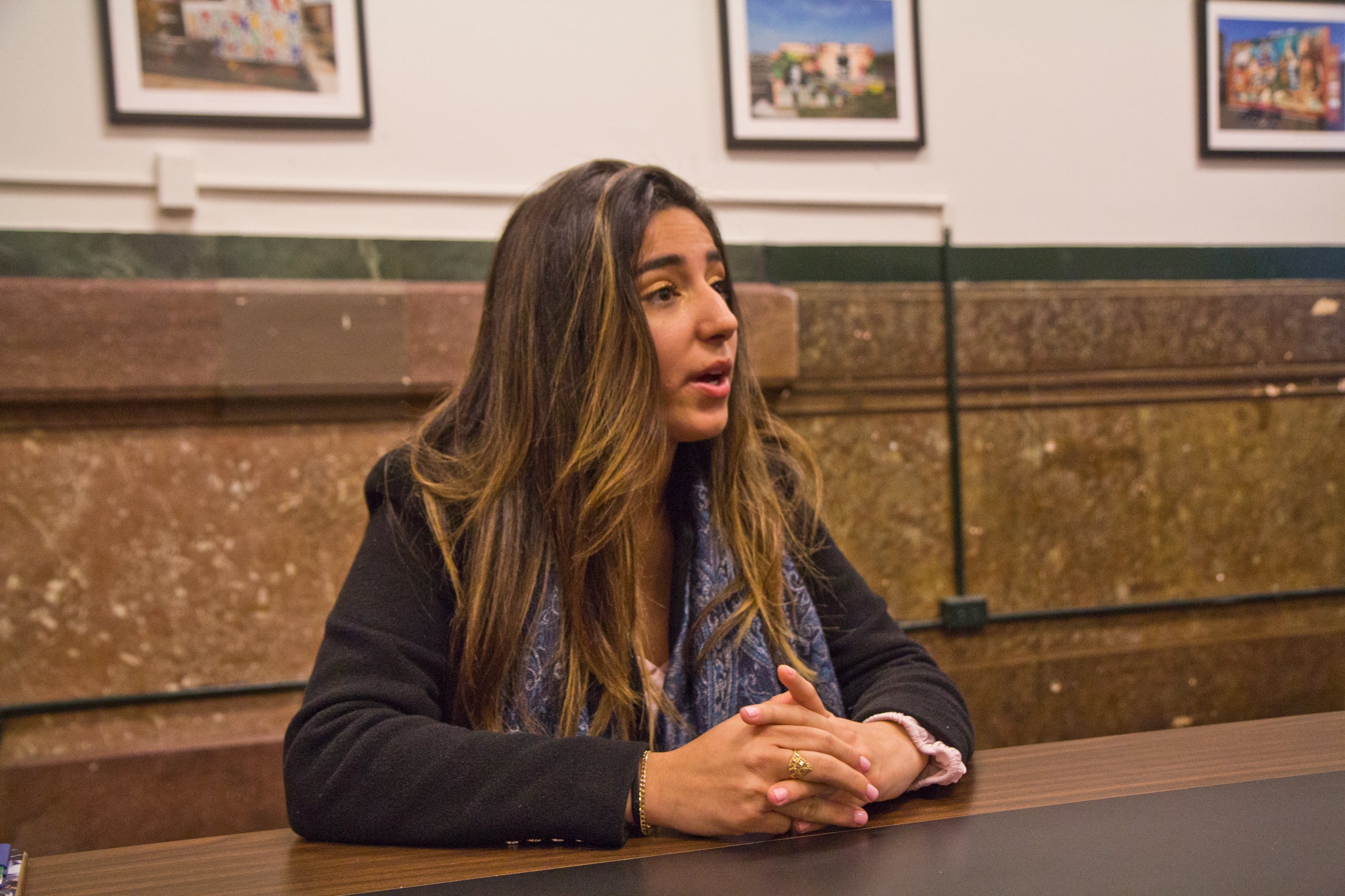
Abigail Brown, a senior at Carver Engineering and Science High School in North Philly, also serves on the Youth Commission. She said college-preparedness is one of the concerns she hears the most when speaking with other students in the city.
“You hear a lot of Philly kids say, ‘I wasn’t prepared for college. I didn’t know this stuff and now I have to spend more money because I’m failing a class, or I need more help,’” she said. “So that’s probably one of the biggest issues that every day, I wake up thinking about.”
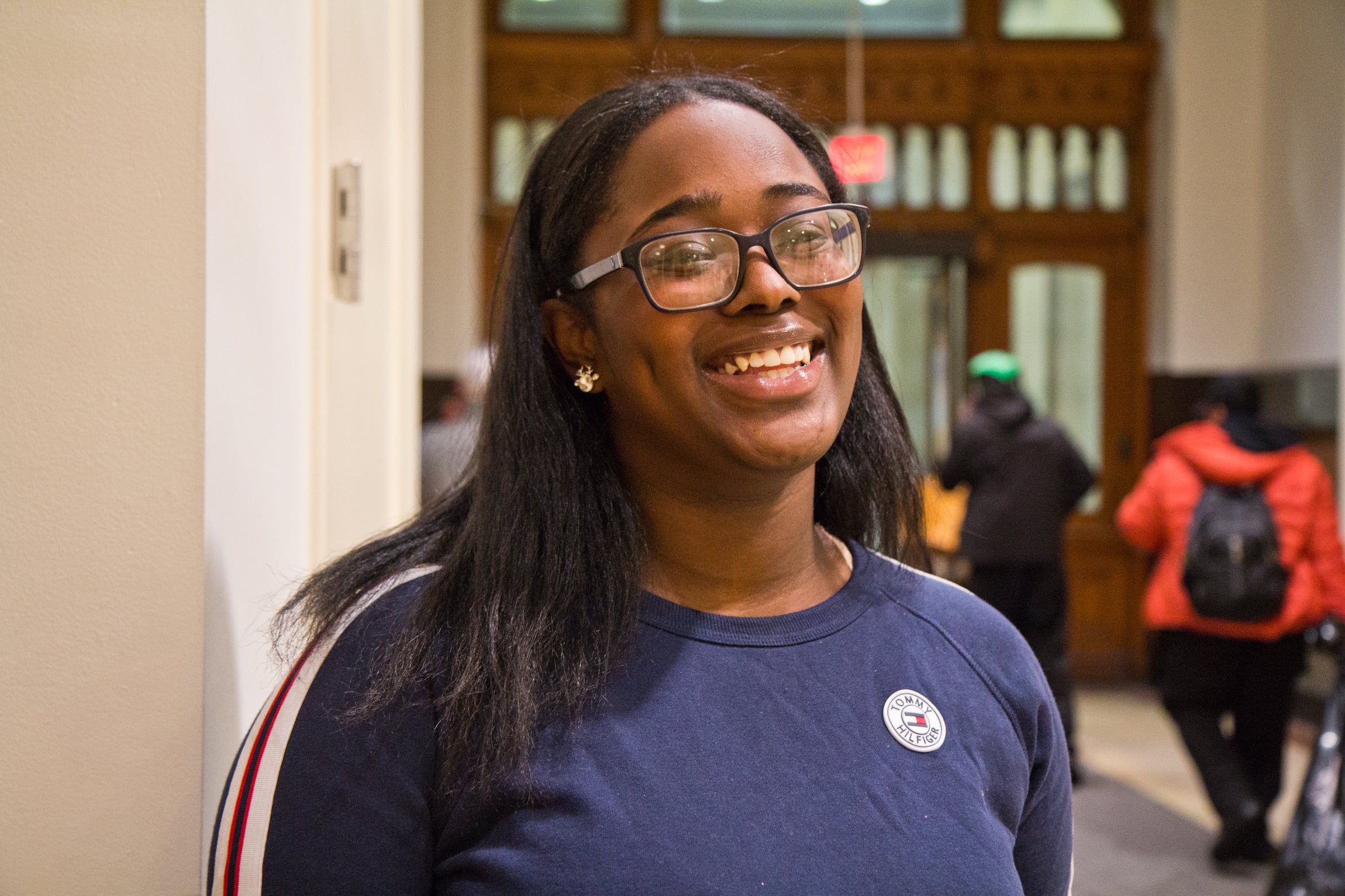
Student voting rates last year grew more than 20% at La Salle, Drexel University, and the University of Pennsylvania.
But at the Community College of Philadelphia, their voter growth is unique. Of all the Philadelphia colleges surveyed by the National Study of Learning, Voting, and Engagement, CCP was the only one where the percentage of students who voted increased despite having fewer students registered to vote overall.
David Thomas, vice president of strategic initiatives at CCP, credits that to the college’s efforts to keep turnout high. He said CCP always ensures voter outreach work happens in the evenings as well as during daytime classes.
“You can imagine if a student is coming in the evening, it’s because they can’t come in the morning, so we didn’t want to exclude those students,” Thomas said.
Jeanette Bavwidinsi, who heads the Office of Youth Engagement said it’s easier to motivate young voters if you can relate the big political issues to their personal lives.
“You’re talking about these issues like climate change and all these things that are part of the national conversation, and then you get [comments] like, ‘I don’t care about that. My dad has been in jail my entire young life,’” she said. “It puts the brakes on whatever you’re talking about. Oftentimes when I engage with young people who are typically left out of these conversations, these are the things they bring up.”
The next thing she does is take that personal stake and connect it directly to an elected official or office. She often points out that just one-fifth of registered Philadelphia voters cast a ballot in the district attorney’s race in 2017.
“So you talk about issues and we talk about comparing it to voting. Did you come out and vote for the DA? This person’s job directly correlates and influences the thing you care about, but you didn’t show up to vote,” she said.
Alfredo Praticò, a freshman at Penn who grew up in Spring Garden, serves as chair of the Youth Commission. He said the best way for young people to make their voices heard in 2020 is to get to the polls in November.
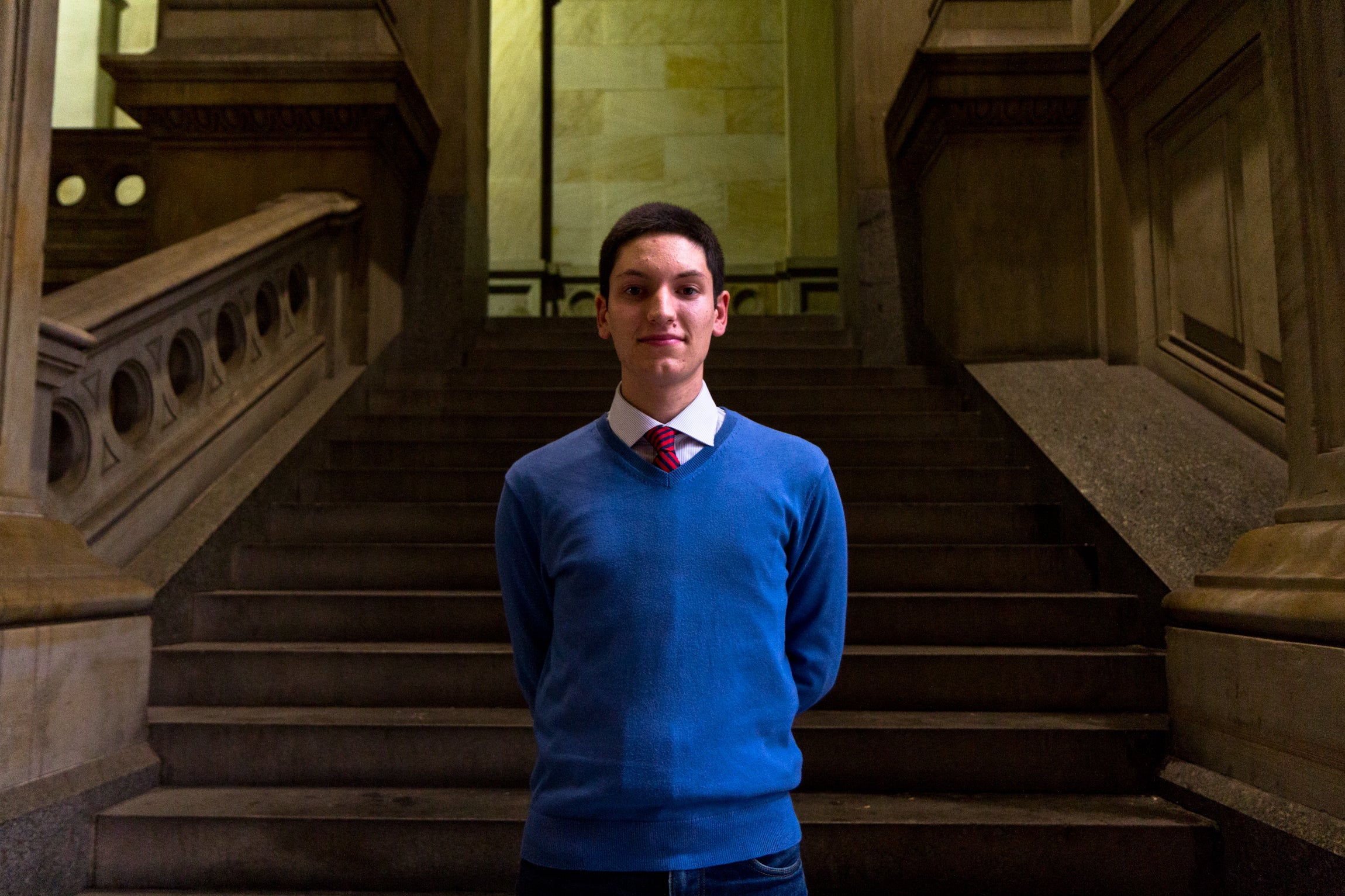
“There’s no part of anything you do that hasn’t been affected by government, whether it was the phone in your hand that was allowed to come into the country by the government or the sidewalk below your feet that was paid for with taxes,” he said. “All it takes is a couple minutes to cast one vote, but without voting, there’s no guarantee that anything you want to see done can happen.”
WHYY is your source for fact-based, in-depth journalism and information. As a nonprofit organization, we rely on financial support from readers like you. Please give today.



